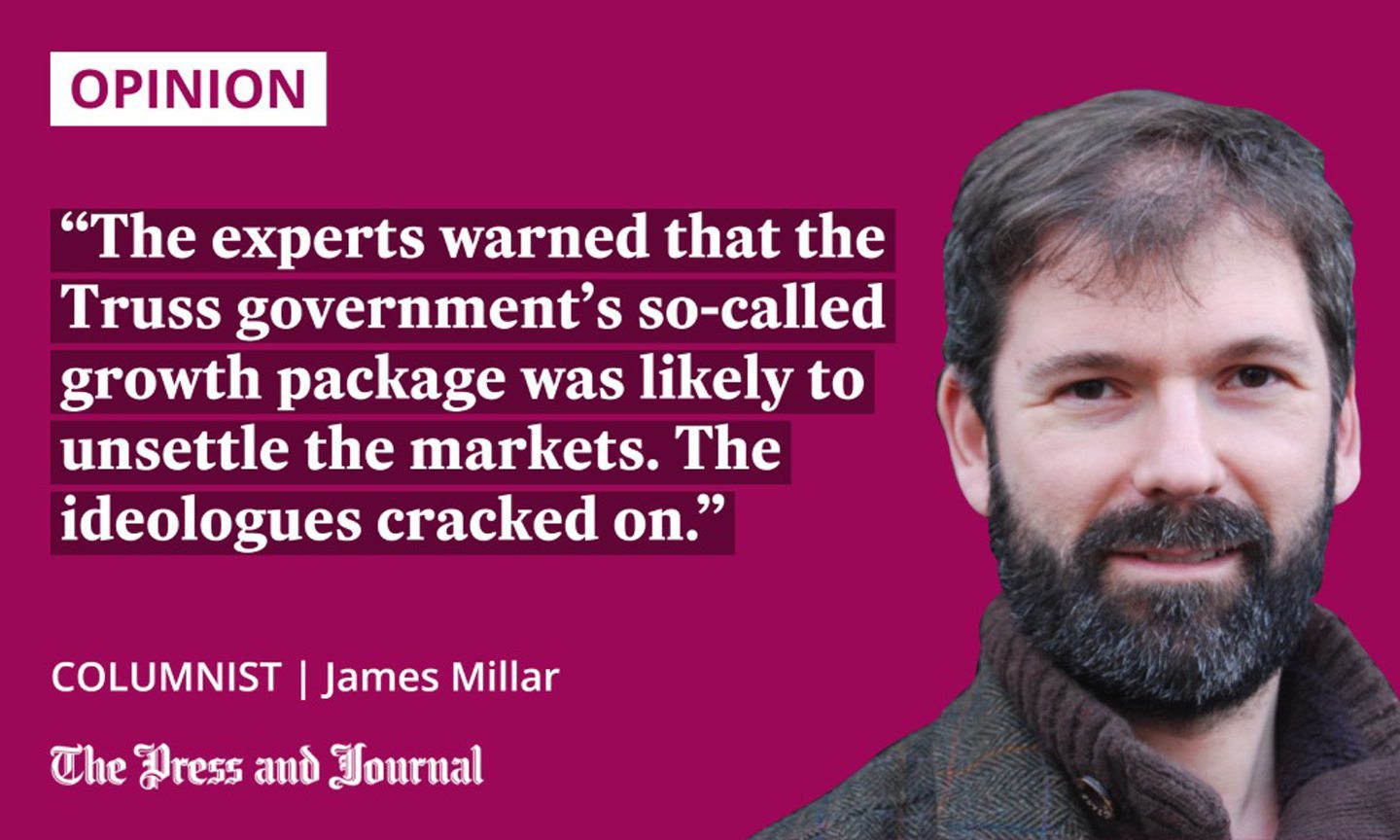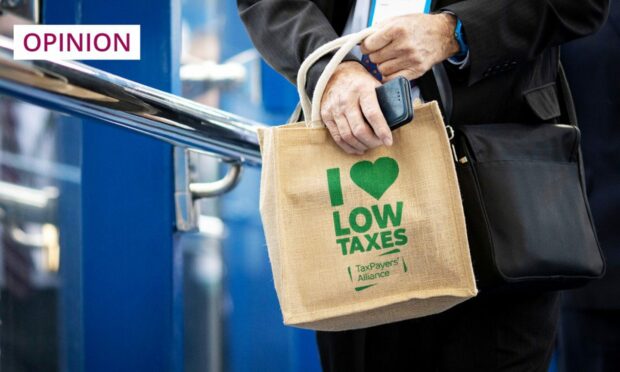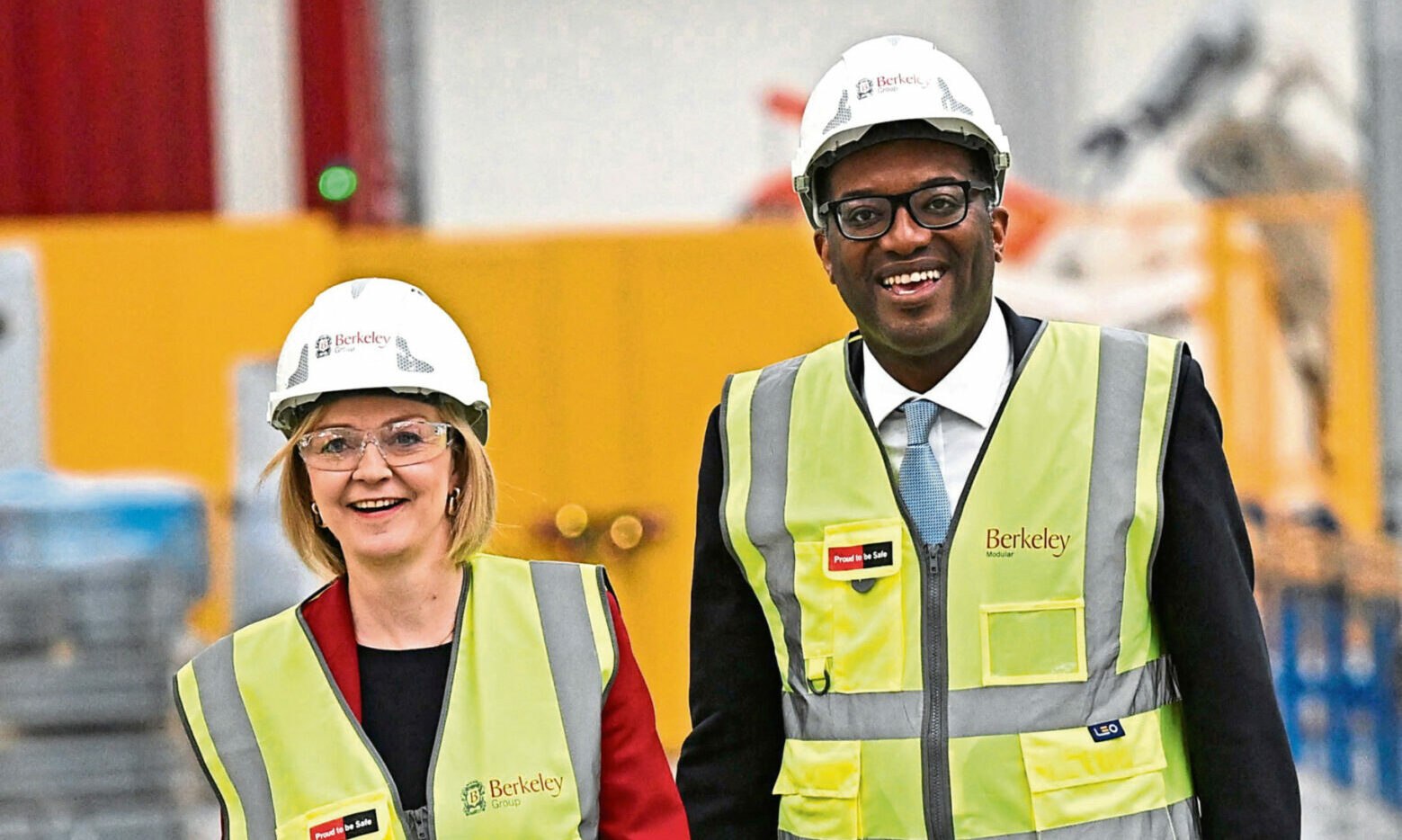Think tanks think and governments do.
Liz Truss has ignored this basic Westminster maxim and reaped the consequences.
She and Chancellor Kwasi Kwarteng have welcomed a vast cast of advisors into Downing Street, many direct from outfits like the TaxPayers’ Alliance, the Institute of Economic Affairs, and Policy Exchange. In return, this crackpot crew caused a run on Westminster puns and begat the “kami-Kwasi budget” and the cost of Lizzing crisis.
You’ll notice that these organisations have a knack for names that sound just serious enough but are essentially meaningless. Before long, an honest one will emerge, simply called The Institute of Things Made Up in My Head.

They also share an ability to attract ambitious but directionless youngsters. The nation needs people who want to change the world, to improve lives, to achieve tangible outcomes. Think tanks too often incubate privileged wannabes who have some vague idea that they want to “work in politics” and, worse, bring with them a conviction that, because they’ve been to the best schools and best universities, logic dictates they have the best ideas.
Let such zealots loose with the levers of power, and it’s akin to giving toddlers who insist they want a unicorn cake with baked beans on top for tea exactly what they want. There’s some satisfaction to proving they were entirely misguided but it’s not them that has to clear up the mess.
A think tank with only one thought
So it has proved. Their ideologically driven agenda did not survive contact with reality.
This is hardly surprising.
For example, Truss’s economics advisor is a chap called Matthew Sinclair, a former chief executive of the TaxPayers’ Alliance (TPA). The TPA is a think tank with only one thought. And that thought is concerned with achieving maximum media exposure, rather than any useful policy ideas.
Kwasi Kwarteng and Matt Sinclair getting a well earned drink at the Two Chairmen. pic.twitter.com/nalt46CQYx
— Eye Spy MP (@eyespymp) September 23, 2022
The reason the TPA has achieved the prominence it has over the years is because they have a 24-hour media hotline and will bail out any journalist desperate for a comment on a politics story. It is not because they are preeminently smart or insightful.
While Kwarteng and Sinclair were spotted in the pub after the chancellor’s fiscal event, the rest of us could only look on as the sort of radical tax-cutting ideology peddled by the TPA for years was put into practice and promptly failed. It was like watching one of those YouTube videos of a rocket launch when the spaceship doesn’t take off, but simply and spectacularly falls over.
Politicians choose ideology over evidence
What’s truly infuriating is that there is no shortage of wisdom and policy expertise in this country. Much of it is to be found in our excellent universities – many crying out for the sort of funding that think tank sugar daddies spray about Westminster without a care.
Given the choice between taking advice from a 20-something think-tanker in a shiny suit or a 50-something politics professor in a corduroy jacket, politicians instinctively veer towards ideology over evidence.
Efforts ought to be made on both sides to open channels, make contacts, and ensure a decent flow of grown-up thinking and robust research
Universities must take some of the blame for this. Too often, academics prefer the familiar surroundings of their ivory towers to the hurly-burly of full contact politics. But efforts ought to be made on both sides to open channels, make contacts, and ensure a decent flow of grown-up thinking and robust research finds its way to receptive ministers and MPs.
Why are think tanks more popular than ever?
Think tanks have been growing in reach and stature in recent years. This is partly because political journalism continues to slide and, as long as correspondents spend more time at their desk than in the field, a nicely-packaged think tank report can be passed off as news.
It’s partly to do with Brexit, since it was only really think tank extremists who were pushing that as a policy prior to 2016, so some wacky characters from odd institutes have been ushered centre stage to explain it in the years since.
But, it’s also related to that overriding attitude, popularised but not begun by Michael Gove, that the British public have had enough of experts.
The experts warned that the Truss government’s so-called growth package was likely to unsettle the markets. The ideologues cracked on. Economic drama and real-world anxiety ensued.
Time to downgrade think tanks on the pecking order
The key to intelligence, a trait common to the truly clever, is an awareness of the limits of your knowledge; understanding that some people know better than you on almost every topic and seeking those people out.
The think tank oddballs running amok in government right now would do well to learn that, and return to their offices away from Downing Street. They are welcome to contribute their thoughts. The rest of us are entitled to ignore them.
Perhaps one good thing to emerge from the first few weeks of the Truss government will be a downgrading of think tanks in the Westminster pecking order. However, no doubt research on why it wasn’t their fault is being commissioned right now.
James Millar is a political commentator, author and a former Westminster correspondent for The Sunday Post


Conversation